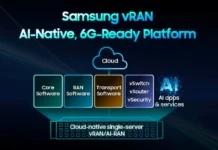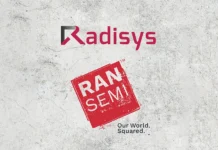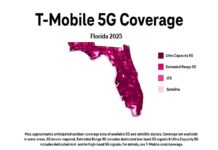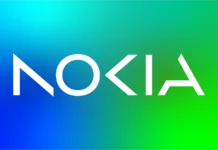Google announced new investments in digital infrastructure and security initiatives designed to increase digital connectivity, accelerate economic growth, and deepen resilience across Africa.
Expanding connectivity in Africa with Umoja
To help increase the reach and reliability of digital connectivity for Africa, today we’re announcing Umoja, the first ever fiber optic route to directly connect Africa with Australia.
Anchored in Kenya, the Umoja cable route will pass through Uganda, Rwanda, Democratic Republic of the Congo, Zambia, Zimbabwe, and South Africa, including the Google Cloud region, before crossing the Indian Ocean to Australia. Umoja’s terrestrial path was built in collaboration with Liquid Intelligent Technologies to form a highly scalable route through Africa, including access points that will allow other countries to take advantage of the network.
Umoja, which is the Swahili word for unity, joins Equiano in an initiative called Africa Connect. Umoja will enable African countries to more reliably connect with each other and the rest of the world. Establishing a new route distinct from existing connectivity routes is critical to maintaining a resilient network for a region that has historically experienced high-impact outages.
We are grateful for the partnership from leaders across Africa and Australia to deliver Africa Connect to people, businesses, and governments in Africa and around the world.
Extending our collaboration
In addition to today’s infrastructure announcement, Google will sign a Statement of Collaboration with Kenya’s Ministry of Information Communications and The Digital Economy to accelerate joint efforts in cybersecurity, growing data-driven innovation, digital upskilling, and responsibly and safely deploying AI for societal benefits.
Strengthening cybersecurity with cloud-powered solutions
As part of the collaboration, Google Cloud and Kenya are announcing that they intend to work together on strengthening Kenya’s cybersecurity. The Department of Immigration & Citizen Services is evaluating Google Cloud’s CyberShield solution and Mandiant expertise to strengthen the defense of its eCitizen platform. CyberShield enables governments to build enhanced cyberthreat capabilities, protect web-facing infrastructure, and helps teams develop skills and processes that drive effective security operations.
Realizing the benefits of digital transformation
Google has long recognized the critical role investments in secure technology infrastructure have on connecting communities, expanding education, and driving healthy economic development within Africa and around the world.
Since Google opened our first Sub-Saharan Africa office in Nairobi in 2007, we have partnered with governments from countries across Africa on numerous digital initiatives. In 2021, we committed to invest $1 billion in Africa over five years to support a range of efforts, from improved connectivity to investment in startups, to help boost Africa’s digital transformation. Since then, Google has invested more than $900 million in the region, and we expect to fulfill our commitment by 2026. The collaboration introduced this week is the latest step towards delivering on our broader commitment to support Africa’s digital transformation, continued economic growth, and innovation.
Supporting economic growth: Between 2021 and 2023, third party estimates show that Google’s products and services provided more than $30 billion of economic activity across Sub-Saharan Africa. Africa’s internet economy has the potential to grow to $180 billion by 2025 – 5.2% of the continent’s GDP, according to a report by the International Finance Corporation. Investments like Umoja, coupled with developing talent who can benefit from, and add to, this growing digital economy, will help ensure citizens can access government services and critical information, while enabling businesses to thrive and generate durable economic growth for the local economy.
Skilling: Our training and certification initiatives help entrepreneurs get more out of the web, using digital technologies to build and sustain businesses and, in doing so, help generate durable economic growth for the local economy. For example, the Google Hustle Academy, a five-day bootcamp launched in 2022 focusing on subjects including leadership, business strategy, and e-commerce, has supported the growth of more than 3,500 small businesses in Kenya.
AI innovations created in Africa, for Africa: Through our AI Research Centers in Ghana and Nairobi, as well as the Product Development Center in Kenya, Google is continuing to build products and services to help tackle challenges across the continent. For example, in Kenya, Google partnered with Jacaranda Health to improve maternal health outcomes with expanded access to ultrasounds. Google is also working with Kenyan health organizations, including IntelliSOFT, Ona, and Medtronic Labs, to enhance the interoperability of digital health solutions. In addition, Google is running workshops with Kabarak University as part of Google’s efforts to support digital health innovation in Kenya.
Google is as committed as ever to partnering with communities, businesses, and governments in Africa to help foster even more innovation across the continent, and we are excited about this next chapter for Kenya and the region.





















